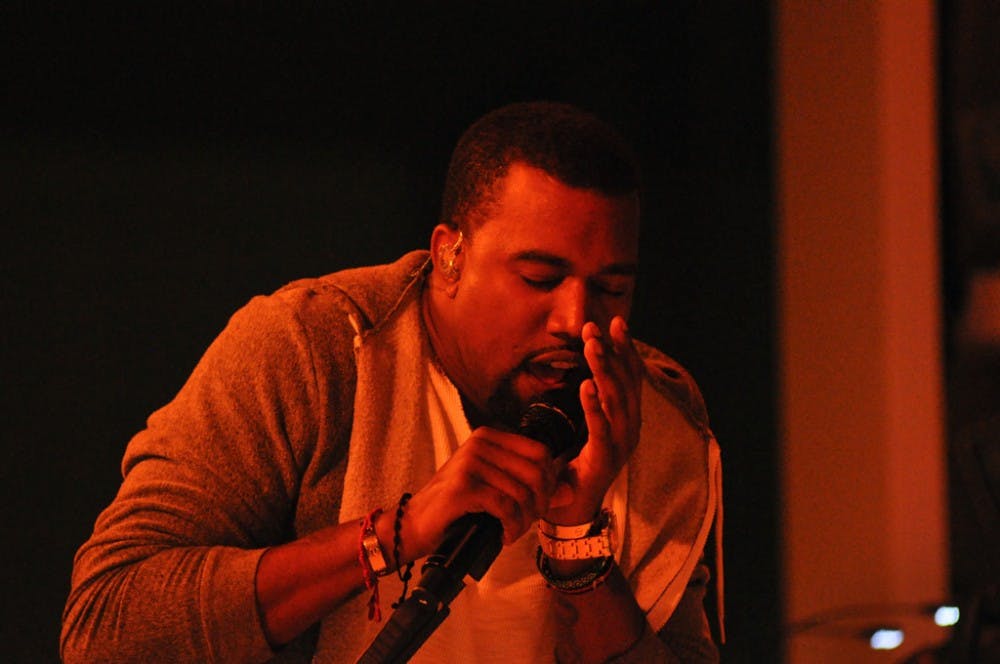After returning to Twitter in mid-April, Kanye West has been stirring up a lot of discussion among his fans and haters alike. This renewed interest in Kanye’s image culminated in a series of tweets in which he espoused his love for Donald Trump, tweeting, “We are both dragon energy. He is my brother,” and showing off his signed Make America Great Again hat. The public reaction was intense.
Of course, Trump supporters rejoiced after finding a black celebrity who supported the president, while the vast majority of Kanye’s fan base raked him over the coals for identifying himself with a movement so often synonymous with white supremacy.
Many other African-American celebrities, such as John Legend, denounced Kanye’s tweets.
Kanye responded to this string of criticism in the first track he released off his upcoming album, “Ye vs. the People.”
It is set up as a back and forth between Kanye and featured rapper T.I., who voices the concerns and criticisms of Kayne’s following, as Kanye attempts to defend himself and justify his actions.
The track draws heavy influence from T.I.’s own take on the format, “T.I vs T.I.P.” in which the cool business man T.I. and his hardcore hustler alter-ego T.I.P. try to reconcile their differences.
But while this track concludes in general agreement and peace between the rapper’s two egos, in “Ye vs. the People,” Kanye is perfectly content with cutting off the track without either side coming closer to agreement.
The production of the song creates a stellar stage for the debate to take place. In the style that made him famous, Ye uses a sample from the 60s R&B Motown legends Four Tops’ song “7-Rooms of Gloom” to create a soulful but surprisingly serious tone.
He splices up lyrics in the sample to create a beat revolving around the lines, “I watch a phone I had for us, and turned my dreams into dust,” a reflection on both the disappointment fans felt in Kanye as his controversial tweets came out and the respective disappointment Kanye felt in his fans’ widespread denouncement.
Kanye’s argument for his actions on the track is based upon his recent identification with the free-thought philosophical viewpoint, claiming in the track, “ain’t goin’ against the grain everything I fought for?”
This viewpoint holds that knowledge and truths should be independent of social norms or traditions, marking a fairly significant change from his previous work, which incorporated many religious themes.
Ye has embraced free-thought as a universal defense for any criticism he receives.
When John Legend messaged Ye encouraging him not to support Donald Trump, he responded “You bringing up my fans or my legacy is a tactic based on fear used to manipulate my free thought.”
Kanye extends his use of free thought in the track to criticize the black community. When T.I. tells Ye, “What makes you feel equal makes them feel evil,” he responds, “All blacks gotta be Democrats, man, we ain’t made it off the plantation.” Ye is arguing that, regardless of freedom by law, blacks are still oppressed through a self-imposed slave mentality.
It’s the communities’ lack of free thought and universal support of ideological tradition that results in much of the community’s strife.
Some hip-hop artists, such as Chance the Rapper, have reflected this sentiment, but many more have denounced it. This is because this particular view advocates working with the oppressor to bring about equality, rather than fighting them, a viewpoint that seems to only result in compliance with the oppressor.
Kanye does not stop there with his criticism of the community that birthed him. He asks “Is it better if I rap about crack? Huh? ‘Cause it’s cultural?” This clear oversimplification of the hip-hop community can only be seen as an attempt to distance himself from it.
Ye has been trying to move away from the identity of being solely a rapper since his third album in 2007, but he always maintained his connection to hip hop.
In abandoning hip hop, he is also abandoning the people he spoke up for for so long. In his 2010 track “So Appalled,” he says “Baldin’ Donald Trump, takin’ dollars from y’all,” defending the people and blaming their strife on those who exploit them.
In “Ye vs. the People,” he switches the blame, arguing that the pain is self-inflicted.
As one of the people who calls Kanye the greatest artist of our generation, I was greatly disappointed by the message in “Ye vs. the People.”
He takes a privileged approach to a style that is founded on the under-privileged speaking up. By attempting to abandon his past and the culture that birthed him, he is abandoning the weight it gave to his words.
Without it, it is hard to see Ye as anything besides just another rich public figure who has lost touch with the struggle and strife of real-world people.

















